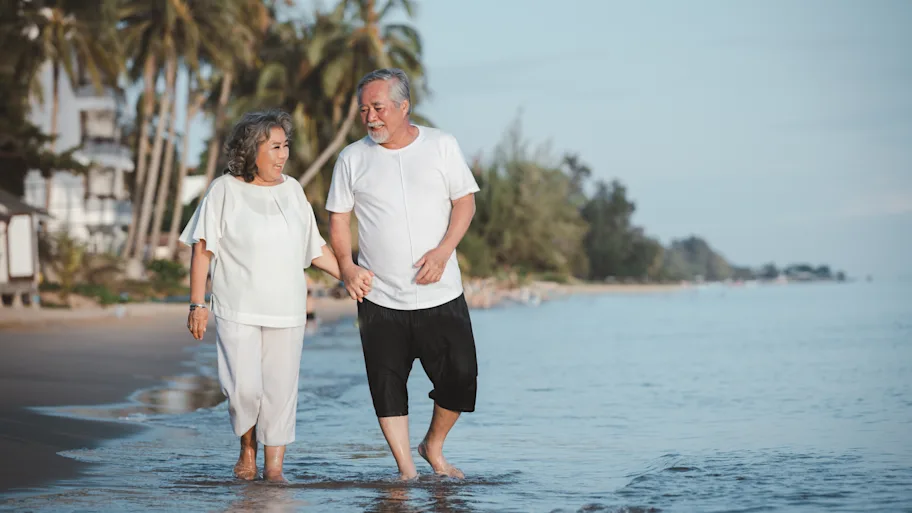
- Science News
- Featured news
- Eating, training, and living healthy as a woman: New research for International Women’s Day
Eating, training, and living healthy as a woman: New research for International Women’s Day

International Women’s Day celebrates the social, economic, cultural, and political achievements of women and aims to accelerate women’s equality. Gearing up for March 8th, we’re highlighting recent Frontiers research on women’s health, professional lives, and societal status.
Increasing vitamin B3 intake could reduce osteoporosis risk in menopausal women by 13%
When bones lose mineral density and become more fragile and prone to fracture, a skeletal disorder known as osteoporosis often is the cause. Especially women after menopause are at an increased risk of developing osteoporosis.
Now, writing in Frontiers in Medicine, researchers in China examined if there is a relationship between dietary vitamin B intake and new cases of osteoporosis. They used data from more than 1,800 US women aged over 50.
They found that intake of vitamin B – found in foods like leafy greens, legumes, and dairy products – was negatively associated with the risk of osteoporosis in the study population. By increasing vitamin B intake by just 10 milligrams a day, osteoporosis risk could be reduced by 13%. This highlights the importance of maintaining a vitamin B rich diet for the prevention of bone density loss among postmenopausal women, the researchers wrote.
Article link: https://www.frontiersin.org/journals/medicine/articles/10.3389/fmed.2025.1504892/full
Lifting weights is easier at certain stages of your menstrual cycle
During the menstrual cycle (MC), hormone levels fluctuate, which, among other things, impacts physical performance during training. Now, researchers in Sweden aimed to better understand women’s perceptions of strength training during different MC phases. They published their results in Frontiers in Sports and Active Living.
Five women who do strength training recreationally recorded their training volume and intensity, perceived motivation, energy levels, and current day of their cycle.
During the follicular phase, performance varied, but several participants noted a lack of energy during the first few days of their MC. In addition, participants indicated they were more likely to injure themselves during this time. The trend reversed during the late follicular stage, when energy and strength increased and peaked a few days into or just after participants’ periods, which might be due to a peak in anabolic hormones during ovulation. During the following luteal phase, performance was noted to be a its lowest. The researchers also stressed the importance of optimized training routines for every individual, as experiences can vary.
Article link: https://www.frontiersin.org/journals/sports-and-active-living/articles/10.3389/fspor.2025.1519825/full
Recurrent UTIs may be most modifiable risk factor for bladder cancer in women
Bladder cancer is among the most diagnosed cancers, and prevalent more in women than in men. In a recent Frontiers in Oncology article, researchers in China used data from 850 women, aged 30 to 85, who were diagnosed with bladder cancer to assess risk factors in women.
Smoking status was shown to be the strongest predictor of bladder cancer, and the results implied that a smoker has twice the risk of developing bladder cancer in comparison to a non-smoker. Occupational exposure to cancer-causing substances was shown as the second strongest predictor, almost doubling the likeliness of developing bladder cancer compared to someone who is not exposed.
Recurrent UTIs emerged as the third strongest predictor – increasing chances of developing bladder cancer by 1.72 – which might make UTIs one of the most important, but least cautioned and most modifiable risk factors, the researchers pointed out.
Article link: https://www.frontiersin.org/journals/oncology/articles/10.3389/fonc.2025.1497637/full
Suspension of voting rights negatively impacts self-rated health for Black women
In the US, citizens of voting age can be denied the right to vote due to felony convictions. In 2020, 5.2 million people were affected. In some states, where felony disenfranchisement laws are stricter than in others, as many as one in seven Black Americans are affected.
Writing in Frontiers in Public Health, researchers in the US investigated if being suspended from casting a vote due to criminal convictions impacted women’s self-rated health.
Using a sample of more than 180,000 female-identifying residents in 49 states, they found that strict states-level felony disenfranchisement laws were associated with lower self-rated health for Black, but not for white, women. They wrote that this chronic exposure to disadvantage and structural racism may not manifest as any particular disease, but as poor health overall. Felony disenfranchisement laws, therefore, may contribute to racial health inequalities, they concluded.
Article link: https://www.frontiersin.org/journals/public-health/articles/10.3389/fpubh.2025.1555227/full
Mentorships could help close the gender gap in STEM professions
Despite efforts to increase gender equality, in science, technology, engineering, and mathematics (STEM) the gender gap is still prevalent, and can be traced back to societal norms, educational systems, and workplace cultures.
A new study carried out by a scientists in Spain, Mexico, and Chile investigated women’s motivations for pursuing STEM careers, their interest in promoting diversity, and the role of mentoring in supporting their professional development. The results were published in Frontiers in Education.
The team conducted 19 interviews and found that for women in different STEM roles motivations differed, aiming for social impact and economic growth in managerial and external professional roles, and for technical or academic goals in research-based positions. All responders, regardless of their roles, stressed the importance of tailored mentorship programs as a fundamental tool for personal and professional growth and a space for exchanging experiences and mutual help.
Article link: https://www.frontiersin.org/journals/education/articles/10.3389/feduc.2025.1473331/full
REPUBLISHING GUIDELINES: Open access and sharing research is part of Frontiers’ mission. Unless otherwise noted, you can republish articles posted in the Frontiers news site — as long as you include a link back to the original research. Selling the articles is not allowed.






